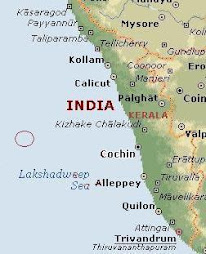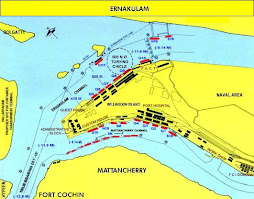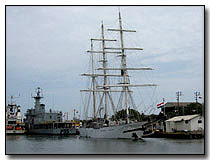http://ecourts.gov.in/services/cases/display_pdf.php?filename=/orders/204701001462005_2.pdf&caseno=OS/100146/2005
(V.M.
Syam Kumar, Advocate, Kochi)
When
can a shipment be termed as ‘time bound delivery shipment’? If no specific time
period has been stipulated in the Bill of lading for delivery, is the carrier
bound to deliver within a ‘reasonable’ time period? What would qualify as a reasonable
time period and what should be the nature of the evidence to be tendered to
substantiate the time period suggested as a “reasonable” one? Are the customary
practises in the Liner trade relevant? Will the exemption clause in the bill of
lading protect a carrier from the duty of delivering within the reasonable time
period? When can such an exemption clause be invoked? In FCL/FCL cargo covered
by a bill of lading with no delivery time requirement, can the carrier rely on
the FCL clause to contend that the nature of the cargo being unknown to them,
the time period and delay if any cannot be carriers concern?
Some
of these questions came up for consideration before the Learned Subordinate Judge’s
Court Kochi. The judgment rendered thus
assumes relevance.
The
issue concerned a
contract for supply of 100 metric tons CDJKL raw cashew crop from Mombasa to
Kochi. Plaintiff alleged that the 1st defendant supplier with whom
the contract was entered into had supplied inferior goods than what was
contracted for and hence they are liable to the plaintiff in damages. The 1st
defendant supplier resisted the suit on the ground that damage if any had occurred
due to ocean transit delay on the part of the 5th defendant carrier.
The Court inter alia considered the liability of the carrier for ocean
transit delay and the proof required for fixing liability on a carrier for such
delay if any.
After a detailed narration of the facts
borne out during trial, the Learned Judge answers the question regarding liability
of the carrier as follows:
“The
question now to be considered is the reason for the physical damage to the
cargo and the person who is responsible to make good of the loss sustained to
the plaintiff. The contention of the plaintiff is that the cargo was damaged
due to moisture condensation and there was fungus germination and the nuts were
sprouted. It is also stated by PW1 that bad odour was emanating from the cargo.
The plaintiff has no case that water has entered into the container during
transit. There is no allegation that the container was damaged during transit
and the damage to the cargo was caused due to any such reason. In Ext.A16 it is
stated by the 3rd defendant that the cargo was damaged due to excess
moisture/condensation as a result of ocean transit delay of 42 days. It is come
out in evidence that if the cashew nuts are properly dried there is no chance
of any condensation due to moisture and thereby causing damage even if it is
kept in the container for a period of hundred days. In this case it is admitted
that the cargo was delivered within 40 days of shipment. Though it is stated that
only 15-20 days will be taken for transportation of the containers from Mombasa
port to Cochin port, it is admitted by the plaintiff's counsel that the
transportation was not a time bound one. There is no evidence to show that the
carrier had undertaken to deliver the goods within a particular period.
Shipment was on FCL/FCL basis and hence the carrier may not be aware of the
quality of the articles stowed in the container, apart from the declaration
made by the shipper. If the cargo is properly dried and sufficient protection
is taken to absorb excess moisture, there is no chance of any condensation. In
this case it is stated that the first defendant had kept papers and moisture
absorbing chemicals to avoid condensation. But the evidence on record shows
that the cargo was damaged due to condensation. It is admitted that the damage
was caused as the cargo was wet. Since none of the parties have got a
contention that water entered into the container during transit, it can be seen
that the damage was due to excess moisture. In Ext.A6 it is reported that the moisture
content was 8%. There is no material to suggest the normal or permitted
moisture content limit in dried cashew. Anyhow, it is the duty of the supplier
to take all possible steps to supply cargo of the assured quality and quantity.
As stated above, in Ext.A2 it is clearly stated that the buyer has the right to
re-inspect the quality and weight of the cargo. So, the primary responsibility
to supply the cargo of the desired quality is on the seller. As stated above,
if the seller had taken sufficient precautions, there was no chance of any
damage due to delay in transit. As the carrier was not aware of the quality of
the cargo inside the container and there was no stipulation to deliver the
cargo within a particular period, it is not possible to find that the 5th
defendant is liable for the loss sustained to the plaintiff, even if it is found
that there was some delay in delivering the cargo.”
The Judgement was delivered in favour of the plaintiff fixing
liability on the seller. The Learned Judge dismissed the suit as against the
carrier by holding as follows:
“During
my discussion in the above paragraphs I have already found that the damage was
caused due to excess moisture/condensation. It is the duty of the seller to
supply good quality materials to the buyer. The buyer has got every right to
get the goods of the assured quality and quantity. As perExt.A2 contract buyer
can reinspected cargo and the same suggest that the buyer has the right to
accept or reject the cargo. It is admitted that as per the terms of the
contract the buyer has paid 5% of the value of the articles in advance and
remaining 95% was paid on 1.3.2005, on arrival of the cargo at Cochin port. The
first defendant is not disputing the payments made by the plaintiff. Once the
goods is found to of inferior quality or defective, the seller is liable to
make good of the loss sustained to the buyer. Though the first defendant has
taken a contention that the 5th defendant is answerable to the plaint claim, in
my discussion in the foregoing paragraphs I have already found that the 5th
defendant is not liable to make good of the loss sustained to the plaintiff.
The claim in the suit is not covered by the insurance policy also. So the first
defendant is liable to make good of the loss sustained to the plaintiff.”
The
judgment rendered by Judge P.K. Mohandas assumes relevance in so far as the nature
of evidence required to fix liability on the ocean carrier for transit delay
has been a grey area. The Judgement rendered in this case inter alia sheds much needed light on the legal requirements in the
said respect.
(Judgment
can be accessed from the links above)
***
***



























